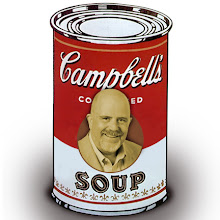Ron Miller, who in my humble opinion, is one of the best journalist writing about all things technical brings up a good point in his recent blog on the difference between a reporter and a social media expert. When I think of social media experts, I think of Christopher Brogan or David Meerman Scott. Brogan's recent foray into a K-Mart and his blog is a classic example of how K-Mart leverage his followers and his writing style into a blog that I read last week. Furthermore, the many friends of Brogan retweeted his K-Mart blog to those of us regular Twitter users.
However, Miller has a valid point when he noted: “But Chris (and others who have done this) is not a journalist and we shouldn't treat him like one, but he is a person with a strong, hard-earned reputation as one of the beacons of social media. He has tens of thousands of people who follow him on Twitter. He has people who hire him for his expertise. He still has a reputation to uphold, even if it's not a journalistic one.”
It's important too that our English educators teach don't dumb down their instruction so that our next generation of readers can’t realize the difference between social media correspondents like Chris Brogan/David Meerman Scott and journalists like Miller, Omar Gallaga, the tech beat writer at the Austin American Statesman, and Roy Bragg, the San Antonio Express News’ uberblogger.
I am thankful that there are people like Ron, who continue with the journalistic integrity to write about topics. As someone who has done writing as a professional journalist and publicist, I understand his point between doing a paid endorsement than a professional journalist like him. The blogosphere needs more voices like Ron, just like they need people like Chris and David. We just have to be smart enough to know the difference in writing styles.




1 comment:
Huh? That seems like a cop-out to me. "I'm not a journalist so it's okay for me to sell my readers and followers for profit?" What's the distinction that's being made here? If you're employed by a media organization you're a "journalist" and if you're a rogue agent out for yourself you're just a social media guy? There's something I'm missing there.
I'm sorry, but if you're someone who writes and is interested in building a trusted relationship with a readership base, you're a journalist and should abide by the same basic code of ethics.
First in that code is to always be straight with your readers. If you want to be paid to post about k-mart, or whatever the situation was there, that's fine, as long as at the top of the post it says something like, "hey, K-mart paid me to come visit and talk about it, and so that's what I'm doing. It's what I would write anyway, so keep reading if you want. But if you think that's icky, feel free to come back later."
However, if you're paid to write about something and you don't make that clear, you're deceiving your readership base, abusing their trust, and not acting ethically, whether you call yourself a journalist or not.
I'm not saying that's what was done in this situation. I'm just saying that using semantics to change the rules of writer-reader relationships doesn't fly with me.
That's my 2 cents.
Post a Comment